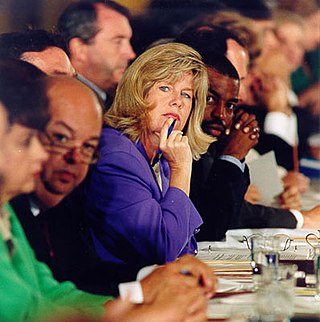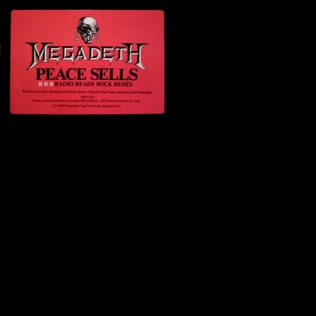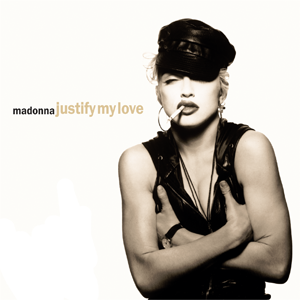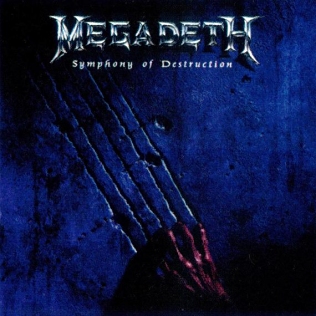
MTV is an American cable channel officially launched on August 1, 1981. Based in New York City, it serves as the flagship property of the MTV Entertainment Group, part of Paramount Media Networks, a division of Paramount Global.
A music video, sometimes abbreviated to MV or M/V, is a video that integrates a song or an album with imagery that is produced for promotional or musical artistic purposes. Modern music videos are primarily made and used as a music marketing device intended to promote the sale of music recordings. These videos are typically shown on music television and on streaming video sites like YouTube, or more rarely shown theatrically. They can be commercially issued on home video, either as video albums or video singles. The format has been described by various terms including "illustrated song", "filmed insert", "promotional (promo) film", "promotional clip", "promotional video", "song video", "song clip", "film clip", "video clip", or simply "video".

The Parents Music Resource Center (PMRC) was an American committee formed in 1985 with the stated goal of increasing parental control over the access of children to music deemed to have violent, drug-related, or sexual themes via labeling albums with Parental Advisory stickers. The committee was founded by four women known as the "Washington Wives"—a reference to their husbands' connections with government in the Washington, D.C. area. The women who founded the PMRC are Tipper Gore, wife of Senator and later Vice President Al Gore; Susan Baker, wife of Treasury Secretary James Baker; Pam Howar, wife of Washington realtor Raymond Howar; and Sally Nevius, wife of former Washington City Council Chairman John Nevius. The PMRC eventually grew to include 22 participants before shutting down in the mid-to-late 1990s.

"Peace Sells" is a song by American thrash metal band Megadeth from their 1986 album Peace Sells... but Who's Buying?, written by Dave Mustaine. The song was released as the band's second ever single in November 1986. "Peace Sells" was the group’s breakthrough hit, and is regarded as one of the best songs in the history of heavy metal. Since 1985, the song has since been a constant at Megadeth concerts. According to David Ellefson, it became quickly apparent when playing the song live prior to recording the album that "Peace Sells" would be a hit. In 2006, VH1 ranked "Peace Sells" at number 11 on their list of the "40 Greatest Metal Songs" of all time. In 2023, Rolling Stone ranked the song number nineteen on their list on the 100 greatest heavy metal songs.

"Justify My Love" is a song by American singer Madonna from her first greatest hits album, The Immaculate Collection (1990). The song was written by Lenny Kravitz and Ingrid Chavez, with additional lyrics by Madonna; Kravitz also handled the production alongside André Betts. It was released as the lead single from the album on November 6, 1990, by Sire and Warner Bros. Records. Chavez was not credited on the song, which led to a lawsuit against Kravitz, eventually reaching an out-of-court settlement. Musically considered as a hip hop, dance, trip-hop, and experimental pop track, it features spoken word vocals by Madonna as she releases her inner freak, touching on sexual fantasies and implying the position of a woman as the one sexually in control.

Parental Advisory is a warning label introduced by the Recording Industry Association of America (RIAA) in 1987 and adopted by the British Phonographic Industry (BPI) in 2011. The label is placed on audio recordings in recognition of inappropriate references, such as sexual content or profanity, with the intention of alerting parents of material potentially unsuitable for children. The label was first affixed on physical 33 1/3 rpm records, compact discs and cassette tapes, and it has been included on digital listings offered by online music stores. In PAL-region territories, some video games featuring licensed music were affixed with the label in the late 1990's and early 2000's.

Hans Uno Jonas Åkerlund is a Swedish film director, screenwriter, music video director, and drummer. His video for Madonna's song "Ray of Light" won a Grammy Award for Best Music Video, Short Form, and a record of five awards at 1998 MTV Video Music Awards, including the Video of the Year.

"A Tout le Monde" is a song by American heavy metal band Megadeth, featured on their 1994 studio album Youthanasia. It was released as a single in February 1995 through Capitol Records. The song was later remade and reissued as "À Tout le Monde ", featuring Cristina Scabbia of Lacuna Coil, on Megadeth's 2007 studio album United Abominations. The song's chorus, "à tout le monde, à tous mes amis, je vous aime, je dois partir", prompted controversy after accusations that it was pro-suicide.

"Human Nature" is a song by American singer Madonna for her sixth studio album Bedtime Stories (1994). It was written as an answer song to her critics, who had panned her provocative image of the previous two years and Madonna's release of sexually explicit works. Written and produced by Madonna and Dave Hall, "Human Nature" includes a looping sample from Main Source's 1994 track "What You Need", therefore its writers Shawn McKenzie, Kevin McKenzie and Michael Deering are also credited. The track was released on June 6, 1995, by Maverick Records as the fourth and final single from Bedtime Stories.

Film censorship is carried out by various countries to differing degrees, sometimes as a result of powerful or relentless lobbying by organizations or individuals. Films that are banned in a particular country change over time.

Beavis and Butt-Head: The Mike Judge Collection is a series of three DVD box sets from MTV and Paramount Home Entertainment, each containing 40 Beavis and Butt-Head episodes chosen by series creator Mike Judge and special features such as interviews and music videos. The first entry in the series was released on November 8, 2005, while the final two volumes were released in 2006.
Censorship is a long term issue in Malaysia which has become more apparent as it attempts to adapt to a modern knowledge-based economy. Despite having in its Federal Constitution that subject to certain conditions, "every citizen has the right to freedom of speech and expression", Malaysia has consistently sat low on global indexes related to press and media freedom.

Facção Central was a Brazilian gangsta rap group formed in the city of São Paulo in 1989. The rap group garnered significant attention due to the powerful content of their lyrics, which ultimately led to the arrest of its members following the release of the music video Isso Aqui É uma Guerra.

"Symphony of Destruction" is a song by American heavy metal band Megadeth, released as a single from the band’s fifth studio album, Countdown to Extinction (1992). The lyrics explore the hypothetical situation where an average citizen is placed in a position where he runs the country while the public is led by a phantom government. Penned by vocalist and frontman Dave Mustaine, the song received significant radio play and charted in various territories, making it one of Megadeth's best known songs.

The British Board of Film Classification is a non-governmental organisation founded by the British film industry in 1912 and responsible for the national classification and censorship of films exhibited at cinemas and video works released on physical media within the United Kingdom. It has a statutory requirement to classify all video works released on VHS, DVD, Blu-ray, and, to a lesser extent, some video games under the Video Recordings Act 1984. The BBFC was also the designated regulator for the UK age-verification scheme which was abandoned before being implemented.

Sexuality in music videos has been evident since the 1980s.
The Australian Classification Board is an Australian government statutory body responsible for the classification and censorship of films, video games and publications for exhibition, sale or hire in Australia. The ACB was established in 1970 and was once part of the Office of Film and Literature Classification (OFLC), which was dissolved in 2006. The Department of Communications and the Arts provided administrative support to the ACB from 2006 until 2020, when it was merged into the 'mega department' of the Department of Infrastructure, Transport, Regional Development and Communications. Decisions made by the ACB may be reviewed by the Australian Classification Review Board. The ACB now operates under the Commonwealth Classification Act 1995. The ACB is made up of a director, a deputy director, and three other board members, appointed by the government for three- or four-year terms, and temporary board members. The ACB is located in Sydney, New South Wales.
Censorship of music refers to the practice of editing of musical works for various reasons, stemming from a wide variety of motivations, including moral, political, or religious reasons. Censorship can range from the complete government-enforced legal prohibition of a musical work, to private, voluntary removal of content when a musical work appears in a certain context.
Paramount Global is an American multinational entertainment conglomerate that has been the subject of criticisms and controversies about its products and services. Criticism of Paramount Global has included the former Viacom Inc.'s announced plans of looking into splitting the company into two publicly traded companies. The company was not only dealing with a stagnating stock price, but also the rivalry between Leslie Moonves and Tom Freston, longtime heads of MTV Networks. In addition, the company was facing issues after MTV was banned from producing any more Super Bowl halftime shows after the Super Bowl XXXVIII halftime show controversy in 2004.














